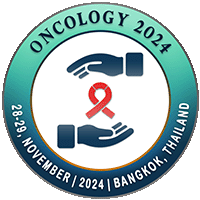.jpg)
Jolem Mwanje
Impact Health Organisation , SudanTitle: A Comprehensive Assessment of Interventions in Women Cervical Cancer Screening in South Sudan
Abstract
Cervical cancer represents a major health challenge in South Sudan, particularly due to limited access to prevention measures. Despite available modern therapies, side effects are severe and do not significantly prolong disease-free survival. Therefore, prevention through screening is crucial. However, a lack of screening increases the risk of advanced cervical cancer, which accounts for up to 12% of the disease burden among women in South Sudan. The aim of this study was to assess the extent of access, coverage, associated factors and health system interventions for cervical cancer screening in South Sudan. The study design was a community-based cross-sectional survey that examined cervical cancer screening behaviors among women of reproductive age in five counties in South Sudan. The study found that only 11.5% of women in South Sudan were screened for cervical cancer. Factors associated with higher screening rates included shorter waiting times for medical services, receipt of HPV vaccination, friendly and caring health workers, and integrated cervical cancer screening facilities. However, there was little evidence of community or institutional interventions aimed at increasing screening rates. These results suggest the need for targeted interventions aimed at improving access to screening services and strengthening health systems to increase cervical cancer screening coverage in South Sudan. The study highlights the urgent need for policy and practice changes to improve cervical cancer screening behavior in South Sudan. It is expected that the results of this study will inform policy and practice to improve cervical cancer screening behavior in South Sudan. The study concludes that cervical cancer screening coverage for women in South Sudan is very low at only 11.5%.
Biography
Jolem Mwanje completed his doctorate in public health at the age of 38 at the University of Central Nicaragua in Nicaragua. He has a master's degree in public health, a master's degree in international development and a master's degree in international cooperation and humanitarian assistance. He is the country director of the Impact Health Organization in South Sudan. He is a published researcher in academic journals.

